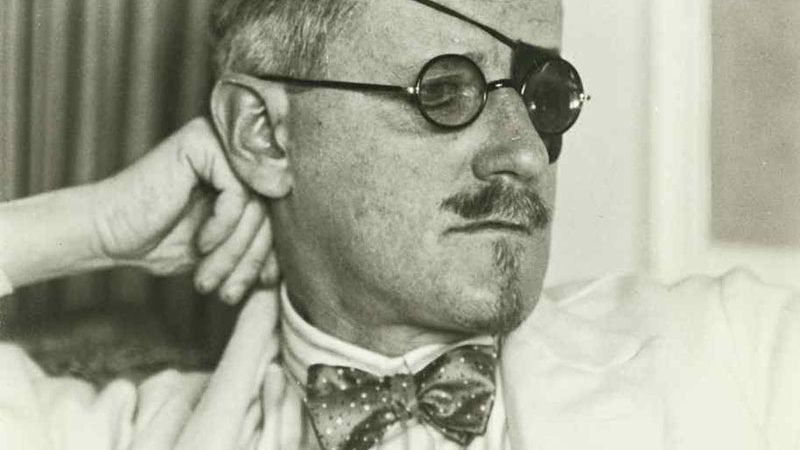Date / Time
- May 19, 2024
2:00 pm - 4:00 pm - June 9, 2024
2:00 pm - 4:00 pm
Registration
- Tuition for this course is $450. Members receive exclusive discounts on our programs and courses. Not a member? Learn more.
- This course is limited to participants who are 18 years of age or older.
- Please check your spam folder for your email confirmation. If you have questions, please call (215) 732-1600 or email [email protected].
- This course meets in person at the Rosenbach once per month. Sessions will NOT be recorded.
You’ve read James Joyce’s Ulysses. Now take the adventure of a reading lifetime with Joyce’s final masterpiece, Finnegans Wake, with renowned Joyce scholar Vicki Mahaffey. Meeting once per month at the Rosenbach, home of one of the great Joyce collections in the world, you will explore this most unique creation with a group of readers in an person course over nine months, ending just in time for Bloomsday. This is your opportunity to conquer one of the most challenging novels of the English language in a friendly, accessible setting, alongside other readers who will take this most joy(ce)ful journey with you.
This course is currently in progress; registration is closed.
Description
“nat language at any sinse of the world” (FW 83.12)
How does one write a work of literature addressed to the whole world? Finnegans Wake is a book of dream and nightmare, incorporating traces of 40 different languages and different historical times, from the early prehistory to the future. What does this temporally and spatially expansive set of references do to a book’s readability, and how might it change the way in which readers read? What happens if we approach it as an anticipation (and memory) of world war? When asked about how to appreciate poetry, Ezra Pound advised that it be read aloud, preferably in a language the reader does not know. Can Finnegans Wake work as this kind of linguistic “music” (or “nat language”:–not language? Language for gnats?)Finally, can a language of “babble” restore to readers the curiosity (and attendant lack of anxiety) characteristic of young children?
In this seminar, we will approach global modernism in relation to global war and the possibilities of global cooperation. To do that, we will learn to read cooperatively rather than individually (and competitively), with a greater appreciation for what there is yet to learn than for what we already know. We will accompany our reading of the text with various contexts: we will listen to the drinking song, “Tim Finnegan’s Wake,” talk about the ancient Irish hero, Finn MacCool, explore the mating habits of salmon (a different kind of fin), and Mark Twain’s Huck Finn. We will turn to Freud’s discussion on condensation and displacement as characteristics of dream language; think about Ibsen’s play about rise and fall (The Masterbuilder), and we will watch a film adaptation of the book. We will think about manuscript illumination as a model for writing, and study the water cycle. We will learn about the geographical layout of Dublin and its environs, contemplate the relevance of the Egyptian Book of the Dead, and dabble in the theories of Giambattista Vico and Giordano Bruno. We will study letters, contemplate snippets of Swift’s letters to Stella, and think about Lewis Carroll on nonsense. And of course, we will also (every week) read selected episodes of Finnegans Wake itself.
Any edition of Finnegans Wake is acceptable, although you might want to choose one with big margins! Essential also is Roland McHugh’s Annotations to Finnegans Wake. You can buy the fourth edition on Amazon (expensive but convenient), or search for a pdf of an earlier edition on google. Finally, a good “plot summary” (based on the early manuscripts), is that of Danis Rose and John O’Hanlon, Understanding Finnegans Wake.
Finnegans Wake with Vicki Mahaffer Syllabus
About the instructor
Vicki Mahaffey is the author of three books, all of which have something to do with Joyce, as well as two edited collections and fifty articles. She received her Ph.D. from Princeton University, and taught at the University of Pennsylvania for almost thirty years. She is also a member of the Board of Trustees of the International James Joyce Foundation (currently serving her third term). While at Penn, she taught courses at the Rosenbach and was involved in the planning of the annual Bloomsday celebrations (she is proudest of introducing musical performances, although she was also part of the team that chose the readings). She is currently the Kirkpatrick Professor of English and Gender and Women’s Studies at the University of Illinois. Recently, Mahaffey has led courses on Ulysses (2021-22) and Yeats’s Poetry (2023) for the Rosenbach.
Date / Time
- May 19, 2024
2:00 pm - 4:00 pm - June 9, 2024
2:00 pm - 4:00 pm

